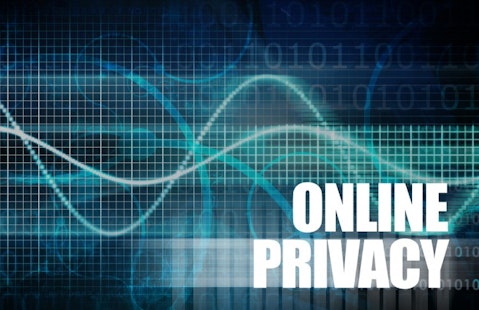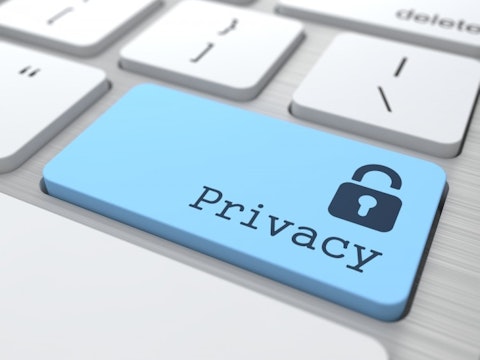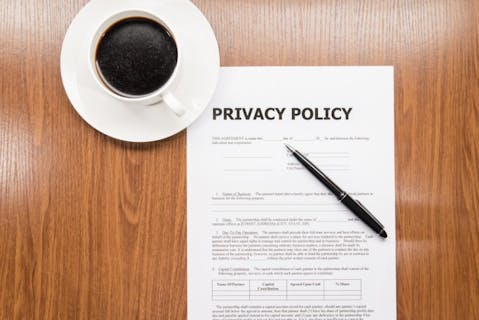There is a growing number of things that should deeply concern you in today’s world wide web and these 7 ways of protecting your privacy online should be one of them. The days when you could go online worry-free and enjoy browsing the (limited at that time) number of new and exciting information and services you could find are long gone. Our list of the 11 countries with most hackers and cyber criminals should give you one of the important examples, the other one being services and people you voluntarily surrender information that is used to vastly change your online experience.

kentoh/Shutterstock.com
Ever since people realized it is a serious source of money, not only for the ever-so-odd-freelancing graduate but more so for the gigantic corporations that already existed before it, as well as the ones that came to life through it, the internet has been a very different place. Nowadays you have to battle endless advertisements, interest-oriented suggestions on everything from what you should watch, listen to and buy to the type of change your life needs and other deep issues and so much more. The problem is that this all was coined as an “enhancing” factor to an already rapidly advancing technology. However, it rarely serves the interests of people who just want to discover better, more efficient or new things online. They serve the entity which pays the most for placement and this is, obviously, the rich corporations, companies and organizations. Before you start moving your mouse cursor to the “close tab” button, give it a moment of thought and don’t just call it a “tinfoil hat” type of thing because we are moving on to the more cyberpunk dystopian part.
Surveillance only means being manically motored for every action of yours to many people. It means to them that there is a way for you to be followed throughout the duration your movement in a given space and your actions being recorded. You wouldn’t really associate it with your daily habit of looking up cute baby animals online but there is a crystal clear fact that your actions online are being carefully surveyed by sites interested in them. For example, a website that sells hammers would really love to know if you looked up something related to hammers online so it could, in one way or another, get the message that they have the new iHammer 8 at their store across to you. This sort of practice is currently one of the less malignant you could come across and most certainly not confined to two or three evil corporations. It is, to a worrying extent, how things work online today.
There are other, far more worrying things that you should protect yourself against but for the sake of keeping things simple and giving you a good start, let’s take a look at 7 ways of protecting your privacy online.
7. Opt Out
For many services online there is a way to opt out of their tracking or whatever other questionable practice / breach of privacy they may allow themselves to use. The option to opt out, however, may be purposefully made a little more obscure than the rest, so look carefully. You can also use a number of websites which allow you to specifically opt out of interest-based advertising if you look online.

Tashatuvango/Shutterstock.com
6.Useful Extensions
There are basically two useful extension you can use to get out of the constant track-and-advertising online. One of them is an ad blocker, such as uBlock or AdBlock which will hadly do anything for your privacy but will remove all the unwanted spam ads. The other is Ghostery, a browser extention which detects and lets you feed blank data to tracking services online. Don’t forget to turn off your ad blocker on websites with no intrusive ads, since advertising is often their main means of making profit.

5. Keep Separate Identities
There shouldn’t be one “you” online. There should be professional “you”, purchases “you”, entertainment “you” and as many other identities as you need with little to no link between them. This is not only convenient for managing but also contributes to keeping the different aspects of your life to yourself.

4. Be Smart About It
It’s normal to be monitored at work. Don’t meddle with your private matters far too much there. Don’t reply to spam messages which ask you to download things, don’t give out your phone number or address for a survey that may win you an iPhone. There are countless things that scream “suspicious” and you should be able to point them out.

3. Do Actually Read the Terms of Service
Even when they are countless lines in volume and talk about the most far-fetched cases you may never even need to consider thinking about in your life, do read what you are agreeing to. A site like Terms of Service; Didn’t Read can help you.

de-focus/Shutterstock.com
2. Find and Delete Unneeded Accounts
Lots of people leave an unnecessarily large and embarrassing footprint of their early days on the internet. Not only that but you may have your online identity associated with things you don’t really want to. A site like Just Delete Me should help you.

1. Use Encryption
Have a suspicion that someone somewhere might be making your private life online not so private after all? Use encryption. It might sound complicated but think of it as sending your messages in a locked box that only their destination has the key for. Nobody between you or your information’s target can know what you are sending. Look online for PGP, the most widely used sort of encryption in emails and conversations.

This has been our list of 7 ways of protecting your privacy online. Do you have any other suggestion?





